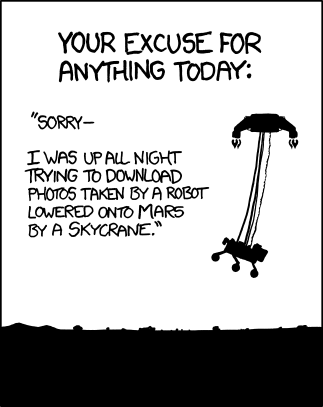The 30in30/WriteLikeCrazy challenge has proven a good workout for my writing muscles. It’s early yet – this is my sixth post in as many days – but in addition to getting words on the page, I’ve also engaged in a decent bit of self-reflection.
Prior to this, my daily decision-making was thus: “to write or not to write?” Usually the answer was “not to write.” Never short on reasons, I chose from:
- No time
- No topic
- No audience
- No confidence
- No expertise
- Just no
With this challenge, the game has changed. New decision points are, “what time will I write” and “what shall I say?”
As to what time, I had dreams of creating a daily writing block. 8-9 a.m., for example. But dreams fade upon waking, and reality kicks in. Although I enjoy morning writing, my schedule varies each day. Other must-dos (prayer and exercise) hold the earliest and most stable time slots, and I’m simply not willing to wake before 5 a.m.
Even though I can’t commit to a recurring time block, I can commit to the writing. I review the next day’s schedule and find 25-45 minutes. Sometimes a bit more. This is a big deal. I like to marinate, so I prefer long blocks of time to write (2-4 hours minimum). But since my focus is on volume and regularity, I try not to stress over the seedlings that require more time and attention.
As to the daily topics, well here’s where it gets interesting.
I’ve been a muted writer for years, feeling as though I had nothing to say. But I’ve been thinking a lot lately, and I’d like to enter some of these thoughts into the public discourse.
I embrace the idea of writing-as-thinking. Writing is often presented as a neat assemblage of final thoughts. Your job, in many cases, is to bring the reader along with you to a shared conclusion. But a lot of the thinking happens in the composing. And finished pieces do not necessarily equal finished thoughts. Herein lies my dilemma.
I wish to write my way through the thinking of things. And I need to post something. But I can’t post just anything. So I censor myself. I don’t write about this or that topic because my thinking is too tentative for presentation.
I don’t write the urgent thoughts I chew on all day long. It’ll take too long to make sense of certain topics, and my daily writing time is limited. But again, I have to post something, right? It’s almost as if building the habit of writing is getting in the way of the reason to write in the first place.
I’m grappling with a solution.
I’ve considered, for instance, serializing more complex thinking. I’ve done a bit of that so far, although I have yet to come back and write follow-ups to my opening statements. I’ve considered super short entries for daily posts. This can free most of my allotted time for stealth mode wherein I’d write-think ideas too messy for public consumption.
I dunno.
Is this a challenge for you? If so, how are you handling it? What writing is worthy to post?


 For years, I had connected storytelling to a sort of pathology. The stories that truly needed telling were riddled with pain and misery. The only important stories showed tremendous triumph over tragedy, rags to riches, or some variation that X was hard and I overcame it.
For years, I had connected storytelling to a sort of pathology. The stories that truly needed telling were riddled with pain and misery. The only important stories showed tremendous triumph over tragedy, rags to riches, or some variation that X was hard and I overcame it.